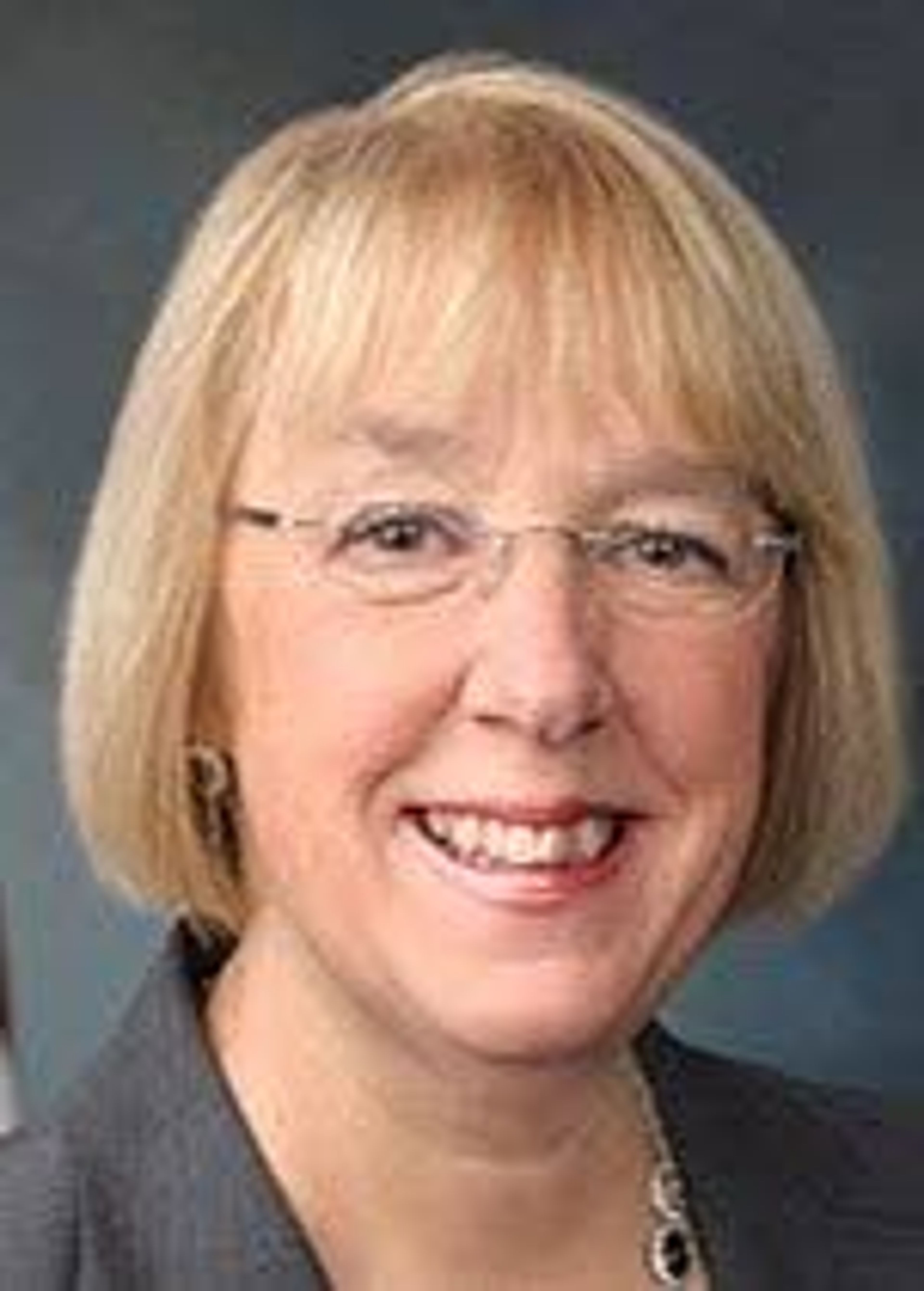Sen. Patty Murray returns to her roots
U.S. senator’s first taste of political activism came when she was a student at the WSU Pullman campus
Returning to the site of her first political victory, U.S. Sen. Patty Murray, D-Wash., discussed the importance of speaking out during a brief visit to Washington State University on Tuesday.
Murray was first elected to the Senate in 1992 and graduated from WSU in 1972. She discussed “Women in Leadership” during a 40-minute talk organized by the Thomas S. Foley Institute for Public Policy.
Although Murray got her start in elected office in the 1980s — after a state lawmakers famously dismissed her as “just a mom in tennis shoes” — her first experience with political activism came in Pullman, during her freshman year of college.
“There was a rule at the time that, in order to go to the dining hall, women had to wear dresses,” she recalled. “That was a year that was really cold, with lots of snow, and I thought that was the most ridiculous, unfair rule I’d ever seen.
So I spoke up, we went out and changed it, and now you can all wear jeans when you go to eat.”
Murray cherished her time at WSU, saying the school “provided an environment that allowed me to speak up and be educated, and have my voice be heard.”
She continues to pay that lesson forward nearly 50 years later, encouraging others to speak out when they see something happening they don’t agree with.
“Don’t let the naysayers stop you, and don’t let loud stop you — that loud person who talks over you or interrupts you,” Murray said. “Focus on what you want to get done. You aren’t going to win every time, but every time you take something on, you learn and gain strength and encouragement for the next battle.”
Murray was one of six women in the U.S. Senate following the 1992 election. This year there are 25, plus another 102 in the U.S. House of Representatives.
In her experience, she said, women lawmakers “tend to want to find solutions more than men.”
Where her male colleagues may plot to find a big dispute they can run on in the next election, Murray said, “women want to find a solution now, so they’re more willing to look for common ground. And they’re better listeners. I’m just going to say it; women are better listeners — and the better you listen, the more you can hear what someone needs, and that helps get you to a place where you find solutions.”
Roughly 70 people attended the event. Murray didn’t take questions from the audience, but answered about a dozen questions that had previously been submitted online. The Senate filibuster rule and universal health care were among the topics she covered.
The filibuster rule requires 60 votes to end debate on a particular issue. It remains in effect, for now, on legislation, but no longer applies to lifetime judicial appointments or most other executive branch nominees.
“If you’re in the majority, you hate it. And if you’re in the minority, you love it,” Murray said. “If the filibuster were gone right now, women would have lost the right to make their own health care choices. That would have been eliminated last year, because Republicans controlled the House and the Senate.”
The filibuster is such a tough rule, she said, because it forces lawmakers to find bipartisan support for legislation before they can move forward. For example, she’s working with Sen. Lamar Alexander, R-Tenn., on a reauthorization of the Higher Education Act, which governs student loan programs, accreditation and other higher education initiatives.
“If we didn’t have the filibuster rule, he could care less what I have to say,” Murray said. “But because he wants to get this passed, he has to make sure we address the issue of affordability and address campus sexual assaults. Will I get everything I want? No, but (these topics) will have to be included in the legislation.”
Regarding universal health care, Murray said providing health care for all Americans “is really what our goal should be.”
However, she wasn’t completely supportive of the “Medicare for all” concept that a number of Democratic presidential candidates are discussing.
“You don’t craft policy with a 10-second sound bite,” she said. “You craft policy by really looking at the impacts, what works, what doesn’t work, what it costs. … ‘Medicare for all’ is a great sound bite.
But the reality of it is quite different. First, you pay for it; it’s not free. I worry that it’s portrayed as something that doesn’t cost anything. Second, it was written for a senior population. It doesn’t cover OB-GYN or pediatrics or other services. It would be a huge change to the health care system that I think we really need to understand before anyone says it’s the solution.”
William L. Spence may be contacted at bspence@lmtribune.com or (208) 791-9168.








